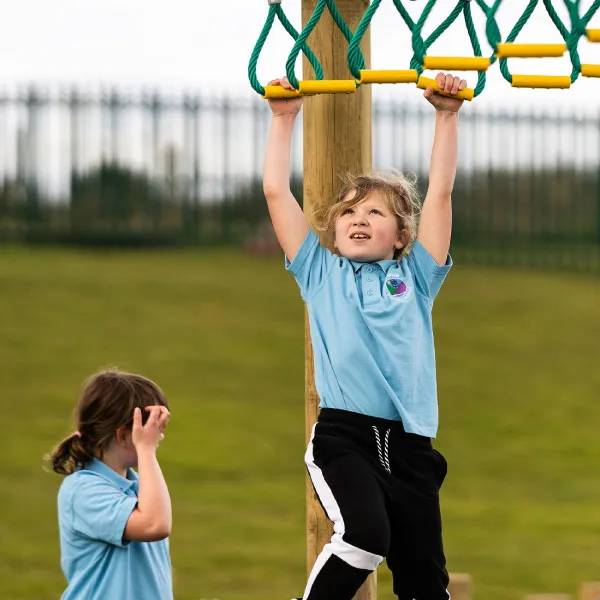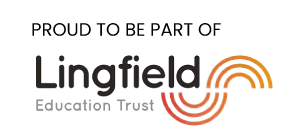Intent
Our curriculum is designed with pupils’ learning at the centre. At Lingdale Primary, we offer an engaging curriculum that gives our children the knowledge, skills, attitudes and behaviours that will enable them to succeed. It is not only designed to meet the requirements of the National Curriculum but to ignite a lifelong love of learning and a willingness to help others. It is our aim that our pupils are happy, well rounded and responsible citizens.
Intent
*We recognise that a curriculum has to be broad, balanced and offer pupils opportunities to grow as individuals as well as learners.
*Our curriculum is underpinned by the school motto, ‘Working together to be the best that we can be’. It encourages our children to consider themselves, others and the world around them; to be creative and independent in their thinking and their approach to learning; and to contribute to their own and each other’s learning. It encourages the to be ‘Safe, Ready and Respectful.’
*Is inclusive and meets the specific needs of all of our children by stimulating a love of learning, removing barriers, providing the depth and breadth of experiences necessary to challenge every child, and celebrating the achievements of all.
*Through a combination of learning techniques, we aim to ensure pupils enjoy learning and feel prepared for their next key stage and life after school.
*We also intend to offer our pupils new and exciting experiences through extra-curricular activities that are designed to build resilience, confidence and self-esteem.
*We want pupils to understand that failure is part of the road to success and help them build resilience.
*We encourage and support children to achieve to the best of their ability.
*We want pupils to acquire a wealth of knowledge and experience.
*Pupils should find a sense of belonging to the school and its community
*We encourage pupils to learn how to cooperate with their peers and respect one another inside and outside the classroom.
*We encourage our pupils to live and breathe our Lingdale Primary virtues as they grow to become good people.
*Our curriculum incorporates the teaching of British Values: democracy; the rule of law; individual liberty; mutual respect for and tolerance of those with different faiths and beliefs and for those without faith. These values are woven into the ethos and practice of the school.
EYFS
At Lingdale Primary School our curriculum is broad and balanced, encompassing key life skills, experiences and expectations. In response to the 2017 ‘Bold Beginnings’ report and the revised 2021 Development Matters and EYFS Framework, we have taken the opportunity to revisit, reflect upon and share our expectations for a quality reception year, encompassing our Trust values, and collective experience – along with a realignment of the core principles of the Early Years Foundation Stage:
These principles are:
- every child is a unique child, who is constantly learning and can be resilient, capable, confident and self-assured
- children learn to be strong and independent through positive relationships
- children learn and develop well in enabling environments, in which their experiences respond to their individual needs and there is a strong partnership between practitioners and parents and/or carers
- children develop and learn in different ways and at different rates
Whilst some aspects of our ‘Trust Ready’ curriculum are academically challenging, we fully embed and ‘live’ the three characteristics of effective teaching and learning of:
- playing and exploring – children investigate and experience things, and ‘have a go’
- active learning – children concentrate, keep on trying if they encounter difficulties, and enjoy achievements
- creating and thinking critically – children have and develop their own ideas, make links between ideas, and develop strategies for doing things.
Our curriculum enables the children to develop skills in all 7 areas;
-Communication and language
-Physical development
-Personal, Social and emotional development
-Literacy
-Mathematics
-Understanding the world
-Expressive arts and design
Communication and language skills underpin all that we do, we ensure that our provision is rich in text and provides all children with opportunities to talk, learn and understand language. We use stories as our teaching focus to allow us to develop.
Positive, Effective Partnerships.
We believe in strong partnerships between staff, children, parents/carers and the wider community. We have effective relationships with private child-care settings, our school nursing team, speech & language therapists and many other external providers.
We provide many opportunities for parents/carers to be involved in their child’s learning at home and at school. We value parents/carers knowledge and understanding about their children and work together to make sure every child reaches their full learning potential.
Look out for some new pictures on our Class Dojo as the children explore their learning environment! We use Class Dojo as a way of sharing successes with parents and carers. It is also used for parents and carers to share with us the wonderful things the children have been doing out of school too! We are so very proud of all of our children and we love to celebrate their achievements whether it be learning to fasten their own coat, ride a bike or scooter outdoors or be able to create a masterpiece in the creative area!
Our children will grow and develop significantly over their time in EYFS; it truly is a wonderful journey to be part of. Most children join us for their pre-nursery experience in our Little Explorers two year old provision, complete their nursery experience and then enter full-time schooling in the September of the year in which they are five.
Key Stage One
Key Stage 1 at Lingdale Primary builds seamlessly from our Early Years curriculum – to offer a broad and rich introduction to specific subject learning, through the excitement of a range of interesting topics. This is where we continue to develop our children even further, establishing greater independence and the basis for study skills. We aim for them to become independent thinkers and expand their naturally explorative minds in our learning zones which offer provision in creativity, writing, maths and construction.
Key Phonics Information
At Lingdale Primary we prioritise the teaching of early reading and follow Little Wandle Phonics Scheme. This scheme ensures effective, consistent teaching of early reading for every child.
Key Stage Two
Our aim at the top end of school is to develop autonomy, creativity and flair. The curriculum in Key stage 2 builds seamlessly from our Key Stage 1 curriculum – to offer specific subject learning, through the excitement of a range of interesting topics!
Our curriculum is carefully sequenced to meet the expectations of the National Curriculum and the Early Years Foundation Stage (EYFS). Each subject follows a detailed scheme of work, broken down into structured learning units. These units are mapped across mixed year groups with a Cycle A and Cycle B for some subjects to ensure progression in:
- Knowledge
- Skills
- Vocabulary
We use subject progression maps and curriculum planning documents to guide teaching and support pupils in building secure foundations for future learning.
Regular retrieval practice is embedded across the curriculum to strengthen memory and deepen understanding. This helps us ensure that pupils know more, remember more and can do more as they move through school.
Click below to see our Year on a Page Curriculum overview documents:



